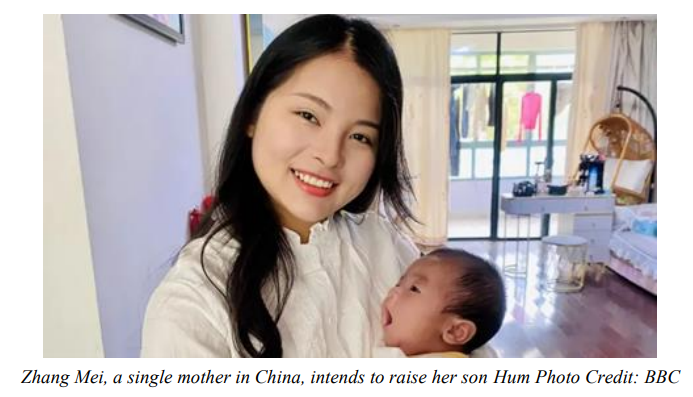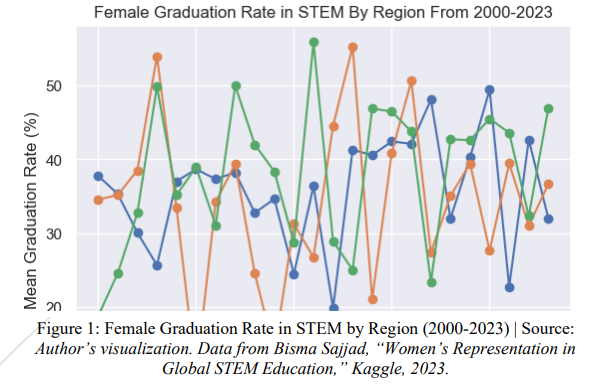By Chuchu Wan
June 20, 2024

China’s policy landscape has undergone significant transformations in recent years, particularly
concerning the rights and benefits of single mothers. Historically, policies have been restrictive,
often excluding single mothers from essential social benefits such as maternity insurance and
streamlined household registration procedures. However, recent changes reflect a gradual shift
towards inclusivity and support for all mothers, regardless of their marital status.
Maternity Insurance Policies
The establishment of the maternity insurance system in 1994, under the “Provisional Measures for
Enterprise Employees’ Maternity Insurance,” marked a significant milestone in China’s social
security landscape. This system stipulated that to receive maternity insurance benefits, women
needed to comply with family planning policies and present a family planning certificate and birth
certificate. This requirement effectively excluded single mothers from accessing maternity
insurance.
This exclusion persisted until the “Social Insurance Law of the People’s Republic of China” was
introduced in 2011. Although the new law did not explicitly maintain the previous exclusionary
clause, practical barriers remained. For instance, in Jiangsu Province, employees applying for
maternity benefits still had to submit a marriage certificate, reinforcing the exclusion of single
mothers.
However, there have been instances where single mothers have challenged these restrictions. In
2017, a single mother in Shanghai, referred to as Zhang Meng (pseudonym), was denied maternity
insurance benefits due to her inability to provide a marriage certificate. She filed an administrative
lawsuit, which became the first case in China where a single mother sought maternity insurance. In
a significant policy shift, the Shanghai Civil Affairs Bureau announced in December 2020 that the
requirement to verify compliance with family planning policies for insurance purposes would be
removed. Subsequently, in March 2021, Zhang successfully applied for and received maternity
insurance benefits online.
Despite these advancements, the policies concerning single mothers’ access to maternity insurance
remain inconsistent across different regions. While cities like Beijing and Shanghai have expanded
the scope of their policies to include all mothers, some regions still implicitly require marriage
certificates, effectively excluding single mothers from these benefits.
Birth Registration and Household Registration Policies
The “Population and Family Planning Law” of 2001 established the “family planning service
certificate,” commonly known as the “birth permit,” as a prerequisite for registering a child in the
household registry. This policy created significant hurdles for single mothers, as obtaining a birth
permit often required proof of marriage.
Over time, some regions have revised their policies to be more inclusive. For example, before its
recent amendment, Sichuan’s “Birth Registration Service Management Measures” explicitly
required couples to register births before childbirth, excluding single mothers. The latest version,
however, has removed the marital status requirement, expanding the policy to include all mothers.
Other provinces like Guangdong, Shaanxi, and Anhui have also updated their policies to allow birth
registration for unmarried mothers.
The 2016 “Opinions on Resolving the Issue of Household Registration for Persons without
Household Registration” issued by the State Council further relaxed restrictions. It allowed single
mothers to register their children using a birth certificate and one parent’s household registration
booklet, marriage certificate, or a statement of non-marital birth, thereby decoupling household
registration from social support payments and birth permits.
Social Maintenance Fees
The concept of “social maintenance fees,” concept introduced in the 2001 “Population and Family
Planning Law” aimed to offset the societal costs of unplanned births. This policy was often used to
penalize single mothers. However, the 2021 decision by the Central Committee of the Communist
Party of China and the State Council to abolish social maintenance fees marked a significant policy
shift. The decision also mandated that access to household registration, education, and employment
should no longer be linked to compliance with family planning policies.
Assisted Reproductive Technology
China’s stance on assisted reproductive technology (ART) for single women remains restrictive.
The 2003 “Regulations on Human Assisted Reproductive Technology” explicitly prohibits
providing ART to single women. Despite this, there have been instances of local policy variations.
For example, the 2002 “Population and Family Planning Regulations” in Jilin Province allowed
women who decided not to marry and had no children to use legal ART methods. However, this
regulation has not been widely implemented or reported.
During the 2020 National People’s Congress, a proposal was made to grant single women access to
ART. The National Health Commission, however, reiterated its prohibition on providing ART to
single women, highlighting the ongoing policy resistance in this area.
Conclusion
In summary, China’s policies regarding single mothers have seen significant changes, particularly
in the areas of maternity insurance and household registration. The abolition of social maintenance
fees and the gradual inclusion of single mothers in maternity insurance and birth registration
policies reflect a move towards greater inclusivity. However, the prohibition on assisted
reproductive technology for single women remains a notable exception. These evolving policies
indicate a complex interplay between traditional family planning norms and the growing
recognition of diverse family structures. Further research and policy adjustments will be necessary
to fully support single mothers and ensure equitable access to social benefits.






